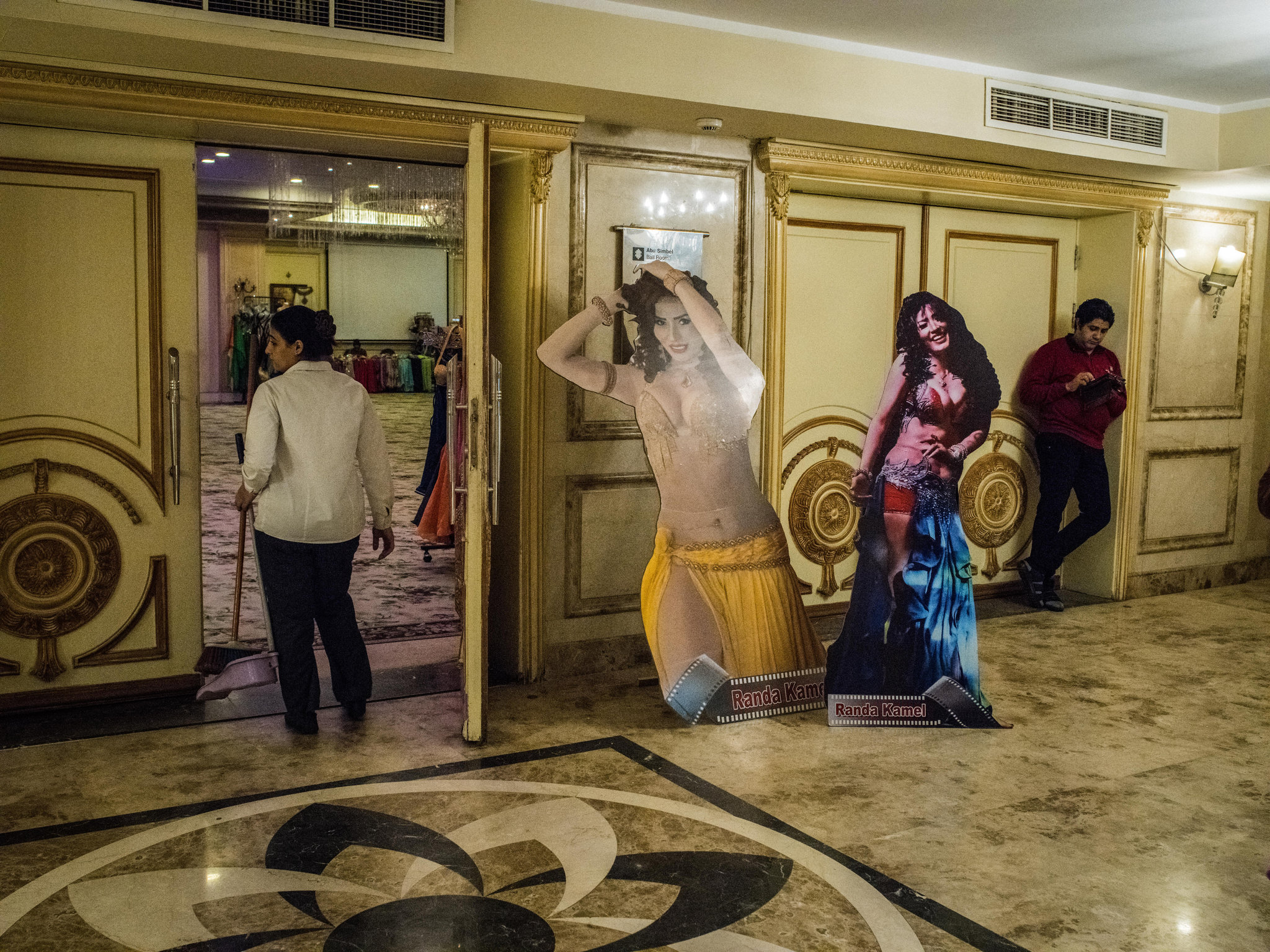The recent arrest of Russian belly dancer Ekaterina Andreeva, who goes by her stage name Johara, has sparked questions about how to view foreigners participating in this dance career. In his article for the New York Times, Declan Walsh discusses this supposed “sullying” of the Egyptian ancient art form. In Egypt’s current belly-dancing scene, foreigners -- the majority of who come from America, the United Kingdom, Brazil, and Eastern Europe – dominate the ranks and appear among the most well-known dancers in their field. According to Walsh, “The foreigners bring an athletic, high-energy sensibility to the dance, more disco than Arabian Nights. Their sweeping routines contrast with the languid, subtly suggestive style of classic Egyptian stars. Some are overtly sexual.”
Undercover police officers arrested Andreev during a performance in a nightclub under the suspicion of her wearing an inappropriate costume, most notably focusing on whether she wore “shorts” -- modesty-protecting undergarments -- at all. After nearly deporting her, authorities have since released her, with the arrest causing Andreeva’s career flourish more than ever before, resulting in new appointments for clientele like the daughter of Egypt’s prime minister and Syrian president Bashar al-Assad’s exiled cousin.
This string of events has spurred critics to question the current state of belly-dancing in Egypt, not just with the “sexual” turn it has taken, but also why the most popular dancers of a treasured Egyptian art form tend to be foreign rather than Egyptian. According to the article, purists “accuse the outsiders of trampling on Arab heritage for profit and pushing the dance form in a brash direction.” But this brings up -- in Walsh’s words – “creeping puritanism that has stifled the arts in Egypt in recent decades” and has led to the stigmatization of belly dancing in general. Egyptian dancers face a double standard in their line of work, where their countrymen “cannot have a wedding without a belly dancer. But if one of them marries your brother — oh, my God! That’s a problem,” as famous Egyptian belly dancer Dina Talaat Sayed is cited in the article.
Where foreign dancers comprise the bulk of the elite dancing scene, Egyptian dancers more often populate the “lower rungs of the industry,” in cabarets and tourist traps, writes Walsh. According to Bassem Abd El Moneim, Andreeva’s manager, “Egyptians see an Egyptian dancer as a hooker. But a foreigner can be a star.”
At its core, the stigma against belly dancing, at least with Egyptian dancers, appears rooted deeply in the family image. Randa Kamel, a teacher at a belly dancing school in Cairo, suffered beatings by her father for dancing as a teenager, and now she and her own teenage son keep her occupation private from his school to ensure his living a “good life,” as cited by Walsh.
In response to these stigmas, foreign dancers have flourished, filling the niche created by this double standard. Still, they admit that Egyptian dancers demonstrate a special quality inherent in their belly dancing that foreign dancers cannot achieve. In the words of Andreeva, “We are technically good, but they have that Arab soul.”

